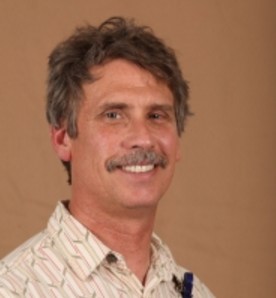 Shoulder pain is a common condition physical therapists address and treat. When you have shoulder pain, it can affect your everyday life, including simple things like your ability to take a cup of coffee out of the microwave or wash your hair. Shoulder pain can also affect your sleep quality due to pain and discomfort from sleeping on your side.
Shoulder pain is a common condition physical therapists address and treat. When you have shoulder pain, it can affect your everyday life, including simple things like your ability to take a cup of coffee out of the microwave or wash your hair. Shoulder pain can also affect your sleep quality due to pain and discomfort from sleeping on your side.
Common causes of shoulder pain include bone spurs and arthritis, bursitis or inflammation and tears in the muscles and tendons of the shoulder.
Shoulder injuries can occur suddenly. Traumatic events such as falling on a shoulder or a sudden activity that over-tasks the arm are common reasons for rapid onset of shoulder pain. However, the onset of shoulder pain can also be gradual, taking days or weeks to become debilitating. This gradual onset of shoulder pain is a common complaint and is often caused by overuse and/or impingement injuries to the rotator cuff tendons.
Overuse injuries generally occur when a repetitive motion increases stress or rubbing on the rotator cuff tendons, eventually damaging them and resulting in tendonitis −‘itis’ means inflammation, so tendonitis is inflammation of the tendon. Most shoulder impingement injuries occur when rotator cuff tendons become pinched between two bony parts in a joint, generally between the shoulder blade and the humerus − the long bone in the upper arm. Think of the tendon as a rope being repeatedly ground and rubbed between two hard objects, like rocks. Eventually, the pinching and rubbing damages the rope. Thus, impingement injuries, if repeated enough times, can eventually bruise, fray or even tear tendons. The riskiest position for tendon impingement is when your elbow is at the same level as your shoulder, so activities such as painting at shoulder height or driving with your arm draped over the top of the steering wheel can place you at risk for impingement injury and resulting shoulder pain.
If you experience shoulder pain, it is recommended that you ice the area for 10 to 15 minutes as soon as possible after the pain occurs. If the pain persists, and especially if you start having difficulty using the arm, it is recommended that you make an appointment with your primary care physician or a physical therapist. Although shoulder pain may be a sign of serious conditions such as a tear or rupture in the tendons, it usually is a less serious problem that can be resolved with appropriate and professional care.
A physical therapist can assess the shoulder structure and develop a plan of care that will best improve the recovery of the shoulder. This plan of care generally includes education on proper body positioning and shoulder mechanics; strengthening exercises that can be done in the clinic, at home or a local gym; and applying modalities and manual therapy to the shoulder to improve function and reduce pain. Your involvement is important for successful shoulder rehab, and your physical therapist will include your goals and needs when developing your plan of care. FBN
EntireCare Rehab & Sports Medicine Experts and Specialties
The therapists and specialists of Northern Arizona Healthcare’s EntireCare Rehab & Sports Medicine department have the education and hands-on experience required to provide comprehensive, individualized treatment plans and therapies.
Each specific type of therapy − occupational, physical, hand and speech − is considered a specialty, and plays an important role in the rehabilitation process. The EntireCare team functions as a cohesive unit, where all members share information and knowledge. The ultimate goal is the patient’s improvement and return to the highest possible functioning level. Choosing EntireCare means patients also have access to a myriad of additional services, such as advanced facilities, technology and equipment.
To make an appointment at one of EntireCare’s Flagstaff locations, call 928-773-2125.
- Flagstaff Medical Center: 1215 N. Beaver St. The outpatient therapy center includes a large exercise gym; private rooms for hand, wound, electrical stimulation and other treatments; an above-ground therapeutic pool; group exercise classes; and more.
- East Flagstaff: 7810 N. Hwy. 89, Ste. 280 (in the Elden Ridge Business Centre next to Subway). Full-time physical therapists provide comprehensive treatment options in a state-of-the-art facility. The clinic offers both private treatment rooms and a gym-like area for patients to work one-on-one with therapists.
Tom De Moulin, M.S., M.P.T., is a physical therapist with Northern Arizona Healthcare’s EntireCare Rehab & Sports Medicine, and practices at both the Flagstaff Medical Center and East Flagstaff clinics. He specializes in physical therapy involving the thoracic spine and ribs as well as visceral work in the abdomen. Tom earned a master’s in physical therapy from Northern Arizona University. He earned a bachelor’s and master’s of science in biology from New Mexico State University in Las Cruces, N.M.
EntireCare Rehab & Sports Medicine is a member of Northern Arizona Healthcare, which also provides healthcare services through Flagstaff Medical Center, Verde Valley Medical Center, Northern Arizona Healthcare Medical Group − Flagstaff, Verde Valley Medical Clinic, Cancer Centers of Northern Arizona Healthcare, Fit Kids of Arizona, Guardian Air, Guardian Medical Transport, Heart & Vascular Center of Northern Arizona, Northern Arizona Homecare, Northern Arizona Hospice and Valley View Care.
To learn more about the programs and services offered at Northern Arizona Healthcare, visit NAHealth.com. “Like” NAH at Facebook.com/NorthernArizonaHealthcare.





